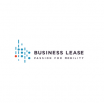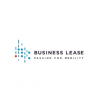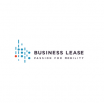Mobility News by Autonom, July 2021
Tue | 20.07.2021
Operational Leasing
Autonom informs about how market changed on renting a car in 2021, and where is the rent-a-car industry heading this summer. Read the interview with Maria Tataru, Marketing Manager of Autonom.
Before understanding where is the car rental industry today, tell us, how did the COVID-19 pandemic impact your sector?
When lockdown measures began to be implemented worldwide, and heavy restrictions were imposed on domestic and international travels, the air traffic industry took the first hit. We've witnessed a global passenger reduction of around 2.89 billion, which translated into approximately 391 billion losses in global airline revenue in 2020 alone. Like a domino effect, next in line was the car rental industry, heavily dependent on air travel, declining by almost 32% last year.
In Romania, airport rentals fell by 95% in the first months of the pandemic. The side effects were strong, and car rental companies had to reduce their fleet to survive, rethink their business models and look for alternative revenue generators.
Last year took a toll on the whole industry as we've seen global players going bankrupt, unable to absorb the shock. This was also visible in Romania and contributed to the shrinking of the market. According to our estimates, if in 2019 the total units of car rental vehicles in Romania was around 11,000 units, we think that today, the local car rental market does not exceed 7,000 – 8,000 cars.
How was 2020 for Autonom's Rent-a-Car division?
We had to shift our focus on managing as efficiently as possible the process of selling cars from the existing fleet, and we also halted the orders for new ones. As a result, in terms of short-term rentals, we had a 29% decrease last year, which was in line with our expectations and below the declines reported by our international peers, which ranged between 40-50%.
The most damaging impact was registered between March and May 2020, in the context of severe traffic restrictions imposed throughout Romania. At the beginning of June, the activity started increasing, and, from August until the end of the year, the average rental rate was very high, over 80%. The annual average rate for occupancy was 69%, down 14% from the 2019 average, which we consider a good result for such a challenging year.
The fleet was reduced by 11% to adapt to the new context, in line with the market changes. Consequently, we ended the year with a fleet of 1,829 cars. The fleet reduction led to a decrease in revenues on this line of business, however significantly reducing the losses that could have occurred.
With the vaccination campaign ongoing and travel restrictions eased, do you see any improvement this summer?
The vaccination campaigns accelerated before the holidays, and we see that people are excited to travel again. Mass vaccinations and easing travel restrictions have been pushing more people to travel again. People are planning their revenge trips after a year of isolation.
We are now in the rentals season, and we registered relatively high demand for short term rentals due to the high frequency of travel across Romania and outside the country. Also, the return of Romanians that work abroad is another factor that boosts the car-rental industry growth this summer.
Besides the COVID-19 pandemic, the automotive industry suffered another blow – the semiconductor's shortage. Does this affect the end consumers in any way?
The chip crisis translates into delays and extended deadlines for new car deliveries, which forces the car rental companies to move their fleet around according to specific demands. It is virtually impossible to extend fleets this quickly to meet the current market needs.
The actual context is generating a “perfect storm” in car rentals market. Due to the high demand and the challenge to adapt the size of the fleets to meet customer’s needs, the prices are going up. Therefore, it is highly recommended that clients who wish to travel by rental car this summer should plan their holiday in advance. Due to the rental car shortage, those who decide to book a rental car last minute might face the unpleasant surprise of booking at higher rates or being forced to search for alternative means of transport.
Overall, customers should expect the global car rental prices to rise significantly this year, compared to 2020 or even to 2019.
What are your expectations this summer for the car rental industry?
July and August are the most intense months for the car rental industry. This time of the year, most Romanians go on holiday, and we expect to see a high demand in September as well. Therefore, the rental prices increase significantly during these months, helping the industry recover the quieter months, such as October or November.
What are the three essential tips you recommend to persons who want to enjoy their holidays while travelling by rental car?
Plan ahead: During the summer months, your car rental company might run out of vehicles. Book in advance.
Be prepared to pay more: The industry is still fragile, recovering from drastic reductions made due to the pandemic, while also dealing with a semiconductors shortage which means companies struggle to grow their fleets. This means that supply is lower than demand, and customers will have to deal with rising prices.
The rules of the game changed: The ongoing pandemic and the safety measures in place require minimizing as much as possible physical interactions. Therefore, more and more bookings and transactions will be made online or via phone. Check out the procedures implemented by your car rental company to avoid any surprises.
This article was provided by our Mobility Partner, Autonom.
2025
-
November (1)
-
October (1)
-
September (1)
-
July (1)
-
June (1)
-
April (1)
-
February (2)
-
January (1)
2024
-
November (1)
-
October (1)
-
July (1)
-
May (1)
-
March (1)
-
February (1)
-
January (1)
2023
-
November (1)
-
September (2)
-
August (2)
-
June (1)
-
May (1)
-
April (2)
-
March (1)
-
February (2)
-
January (2)
2022
-
December (3)
-
November (4)
-
October (3)
-
September (4)
-
August (3)
-
July (6)
-
June (4)
-
May (4)
-
April (8)
- Marketing News by diARK - April 2022
- Finance News by Mazars Romania - April 2022
- Experience the Perfect Chauffeur Transfer with David Intercar
- Mobility News by Business Lease - April 2022
- NRCC MEMBER IN SPOTLIGHT, WOLTERS KLUWER
- Crowe Romania and DeclaratiaUnica.ro engage in the automation of the single return form and the offering of personalized consultancy
- Cryptocurrency News by Bitcoin Romania, April 2022
- Legal News by BBW LAW - April 2022
-
March (6)
-
February (4)
-
January (5)
2021
-
December (3)
-
November (4)
-
October (2)
-
September (2)
-
August (1)
-
July (5)
-
June (3)
-
May (5)
-
April (4)
-
March (7)
- Cryptocurrency News by Bitcoin Romania, April 2021
- HR News by CNA International Executive Search Romania, March
- Real Estate News by CTP Invest, March 2021
- Sale-Purchase of Agricultural Land Located Outside Build-Up Areas
- MEET THE NRCC BOARD CANDIDATES 2021
- Fleet Management – Complete Makeover or Small Adjustments?
- Cryptocurrency News by Bitcoin Romania, March 2021
-
February (5)
-
January (6)
2020
-
December (2)
-
October (2)
-
September (3)
-
August (2)
-
July (6)
- NRCC Member in Spotlight Interview - Autonom
- Insolvency Proceedings: New Rules
- Member in Spotlight, UniCredit Bank
- Financing opportunities overview for large enterprises, SMEs and other organizations
- Companies: Simplification of Formalities
- Call for Leaders | What is your readiness score to benefit from the EU SURE initiative?
-
June (5)
-
May (8)
- The State of Alert. New rules for the collective proceedings
- The Retail Industry
- EU grants up to 6 Mil Euro for SME-s investment projects
- Member in spotlight, Heisterkamp Transportation Solutions
- State of Alert...What Is New
- The forced transformation of the automotive industry – Mazars analysis
- State of Alert in Romania
- Reducing the Impact of the Pandemic
-
April (6)
-
March (2)
2019
-
November (2)
-
July (1)
-
June (1)
-
March (2)
-
January (1)
2018
-
October (2)
-
September (1)
-
August (1)
-
July (3)
-
June (2)
-
May (1)
-
April (1)
-
March (3)
-
February (13)
- NRCC Elections 2018 - Elena Badea
- NRCC Elections 2018 - Loreda Dragomir
- NRCC Elections 2018 - Simina Fodor
- NRCC Elections 2018 - Manuel Herraiz Orti
- NRCC Elections 2018 - Tom Leene
- NRCC Elections 2018 - Mircea Moga
- NRCC Elections 2018 - Ronald Oort
- NRCC Elections 2018 - Razvan Pascu
- NRCC Elections 2018 - Alexandru Popescu
- NRCC Elections 2018 - Mihaela Tudor
- NRCC Elections 2018 - Loredana Van de Waart
- NRCC Elections 2018 - Edwin Warmerdam
- NRCC Elections 2018 - Philip Aarsman
2017
-
November (1)
-
September (1)
-
August (2)
-
May (1)
-
April (2)
-
March (1)
2016
-
November (1)
-
September (8)
-
June (1)
-
February (2)








